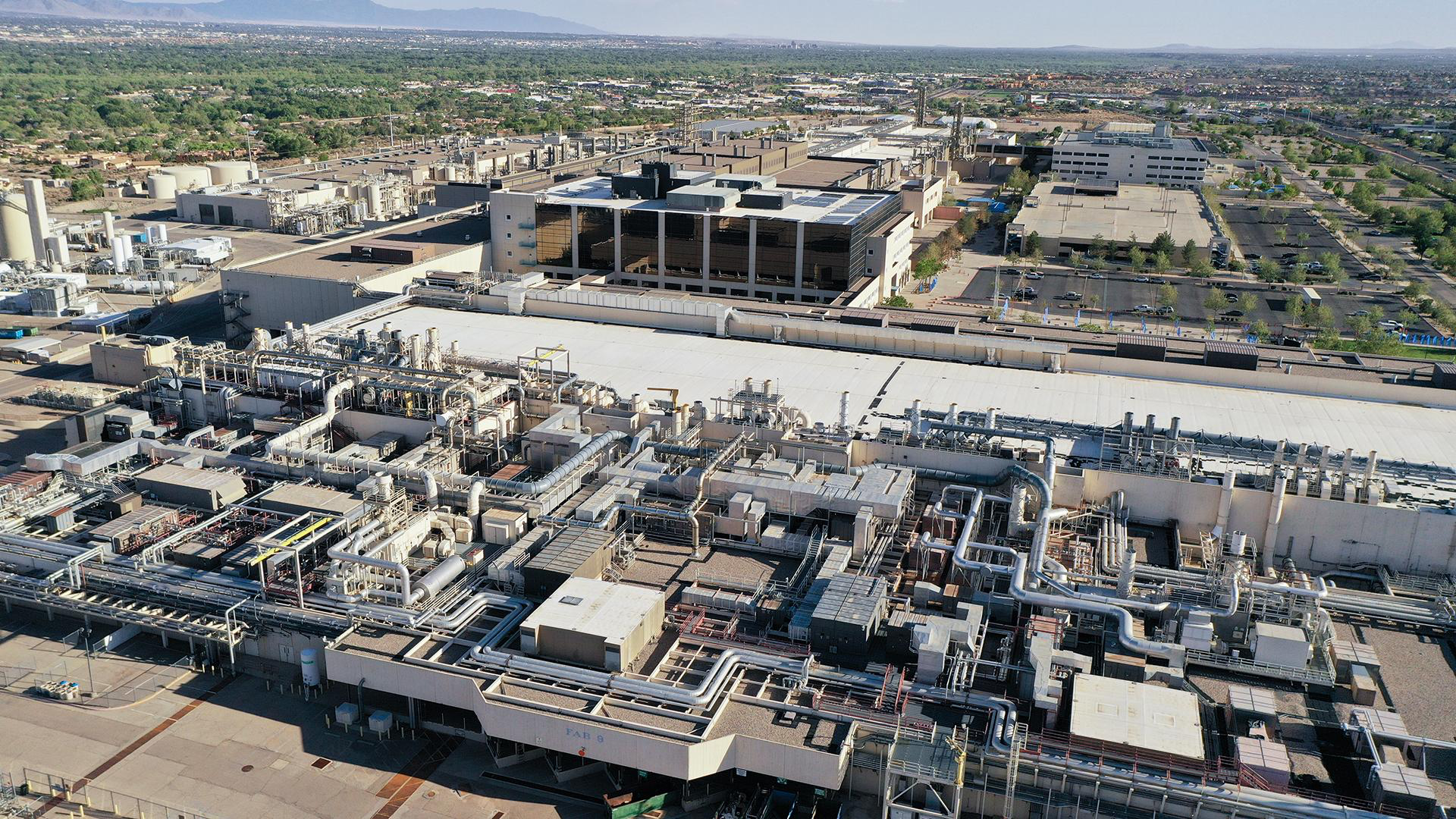Intel a Candidate for Billions More in CHIPS Act Funding for Defense Work
Intel and U.S. government working to build 'Secure Enclave' to build chips for government and military use.

Intel could potentially be the top beneficiary of the CHIPS Act funding as the company is not only building several leading-edge fabs in Arizona and Ohio, but is apparently involved in a secret 'secure enclave' project designed to ensure that the U.S. military has access to chips produced in America, reports the Wall Street Journal.
Intel is currently building four new fabs in the U.S.: Intel 20A-capable Fab 52 and Fab 62 near Chandler, Arizona, that are due to come online in 2024 as well as two new Intel 18A and Intel 20A-capable near Columbus, Ohio, that are set to start mass production in 2025. Recently the company announced plans to accelerate Arizona fabs buildout to start earlier production of advanced chips. Both vast projects require investments of $100 billion or more, so it is not surprising why Intel needs government support.
In addition to building leading-edge fabs in the USA, Intel is apparently in talks with the U.S. government over the so-called 'secure enclave' project, which goal is to reduce reliance of applications for the U.S. government and military on chips made in Taiwan, which the U.S. government considers a vulnerable country.
'Secure enclave' fabs are projected to be funded separately, according to the WSJ. The precise funding allocation by the U.S. government remains unclear, but individuals with knowledge of the matter have estimated that the cost for these facilities might range from $3 billion to $4 billion. This expenditure is expected to be sourced from the $39 billion designated for manufacturing grants under the Chips Act.
Intel could get funding for its Arizona, Ohio, and secure enclave facilities, which will make it the main beneficiary of the CHIPS Act funding. Meanwhile, the focus on Intel has sparked a debate among lawmakers and competitors as thereis a fear that allocating a substantial portion of the Chips Act funds to Intel could disadvantage other companies. Moreover, some senators are advocating for a more integrated approach to security within the chip manufacturing process, rather than isolating it within dedicated fabs.
These dedicated fabs serving solely the defense sector might face financial challenges, a sector that accounts for only about 2% of the total chip market. Additionally, defense clients typically have specialized requirements, such as the need for chips that can withstand extreme temperatures or the conditions of space, something that no other clients need. They argue that this could be a more cost-effective method, referencing a Defense Department review that found low security risks at the chip fabrication stage.
"We are concerned that the [Department of Defence] is considering sole sourcing an award to one company to build a secure enclave at a cost that is far greater than [a typical approach to secure chips for defence applications]," a letter obtained by The Wall Street Journal and signed by multiple American politicians reads. "Doing so would limit funding for other projects that would create a diversified domestic supplier base of semiconductors critical to the defense industrial base."
Get Tom's Hardware's best news and in-depth reviews, straight to your inbox.

Anton Shilov is a contributing writer at Tom’s Hardware. Over the past couple of decades, he has covered everything from CPUs and GPUs to supercomputers and from modern process technologies and latest fab tools to high-tech industry trends.
-
jkflipflop98 Intel being the main beneficiary only makes sense. Intel is the only American semi company capable of mass production of leading-edge nodes.Reply
Everyone else is already government subsidized. -
thisisaname Reply
Intel wants more money but then again very few companies would say no to some free government money (yes it is not "free" but it is someoneelse who is paying so to them it is "free")usertests said:Intel needs mo' money -
rluker5 I used to work in an old alloy steel foundry that was inefficient but had good capabilities for low numbers of large sized castings. They got some U.S. military contracts as well (it was just a small part of the business, foundry mostly made for mining and railroad). I got the impression that part of the reason why was to keep the local manufacturing capabilities available and ready. I'm pretty sure the U.S military could have bought the same castings from China for less but didn't want to.Reply
If this is a similar case with Intel, the military doesn't have to settle for more expensive or less performance. Just Intel getting lucky that their local manufacturing of vital parts is of strategic importance during a time of growing global instability. That and those in DC are always looking for reasons to spend money.